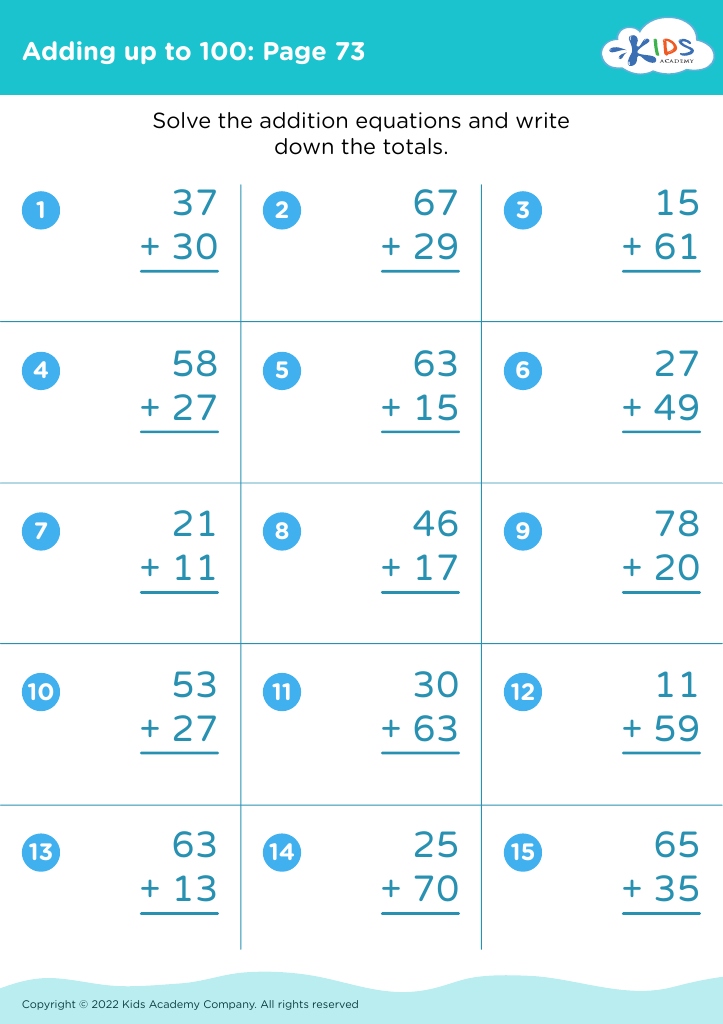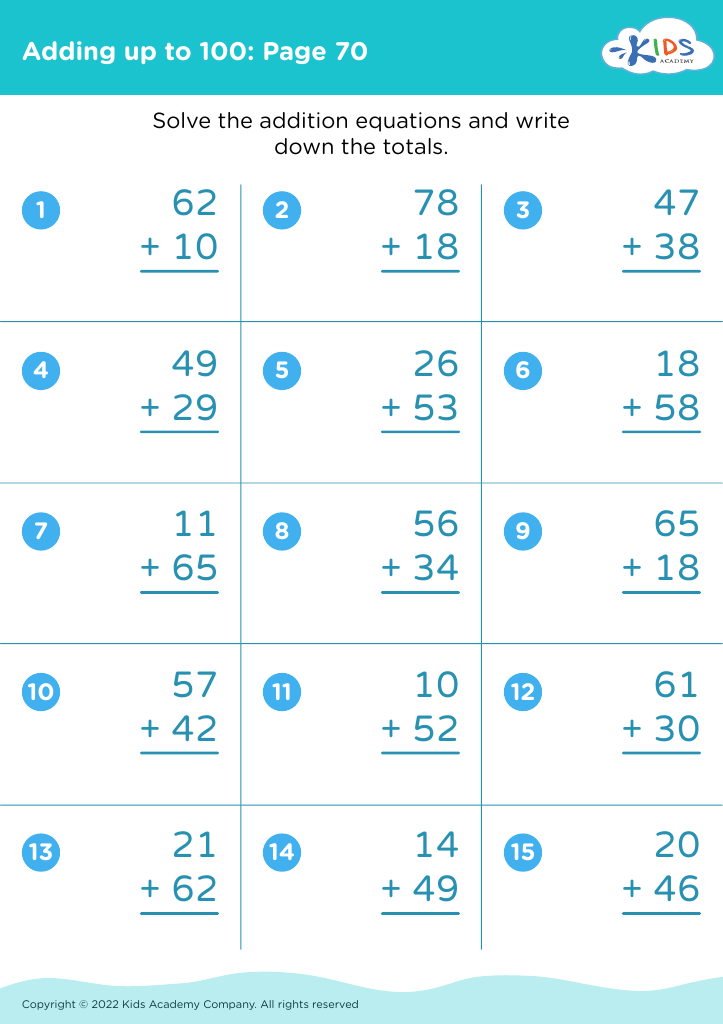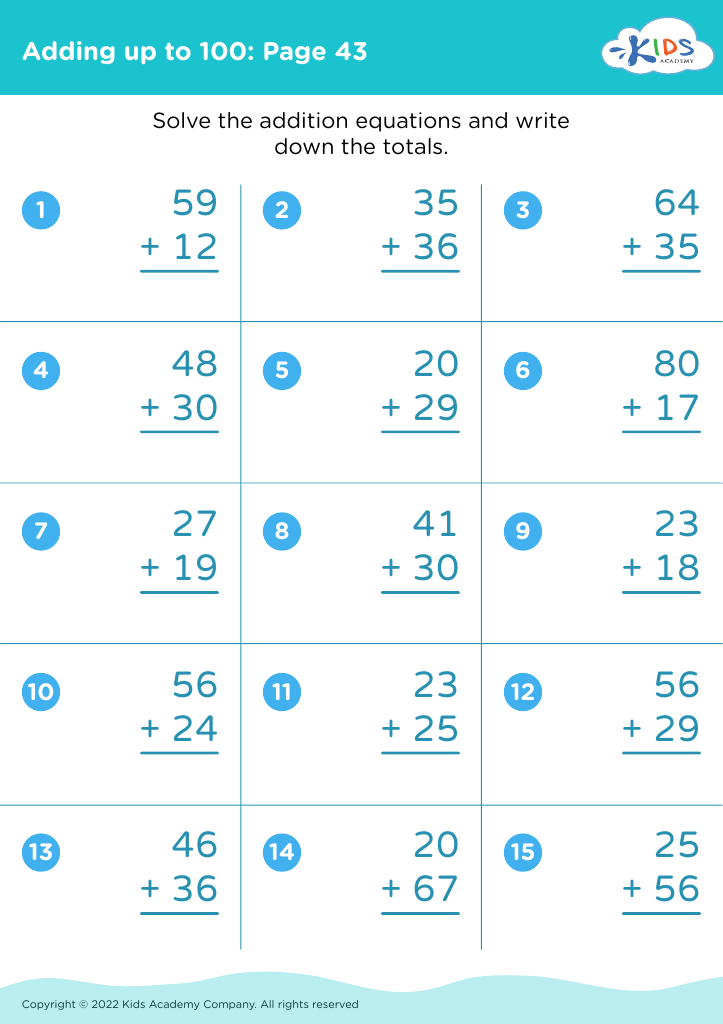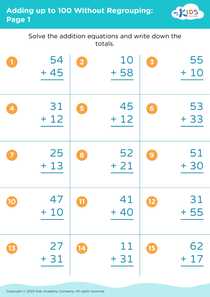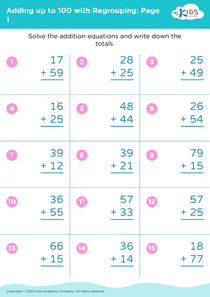Counting practice Adding up to 100 Misc Worksheets for Ages 6-7
4 filtered results
-
From - To
Discover engaging counting practices with our "Counting Practice: Adding up to 100" worksheets designed specifically for ages 6-7. These miscellaneous worksheets provide young learners with fun and interactive ways to master addition skills while building confidence in their math abilities. Children will enjoy various activities, including number patterns, simple equations, and visual illustrations, all aimed at reinforcing the concept of adding up to 100. Perfect for both classroom settings and at-home practice, our resources support early grade teachers and parents in fostering a solid foundation in mathematics. Explore our worksheets to make counting both effective and enjoyable for your young learners!
Counting practice, especially in the context of adding up to 100, is crucial for children ages 6-7 as it forms the foundation of their mathematical understanding. During this developmental stage, children are making key cognitive shifts, enhancing their problem-solving abilities and number sense. Mastery of counting and addition lays the groundwork for more complex mathematical concepts they will encounter in later grades.
Engaging in counting activities that encourage adding up to 100 promotes mental math skills, which are essential for everyday calculations and future academic success. This practice sharpens their ability to visualize numbers, recognize patterns, and understand the relationship between different quantities. Furthermore, counting exercises can improve fine motor skills when using manipulatives or writing numbers, making it a multifaceted learning experience.
Additionally, consistent counting practice nurtures a child's confidence and self-esteem. It provides opportunities for achievement, reinforcing positive learning experiences. With today’s emphasis on STEM education, familiarizing children with numbers early on prepares them for subjects that rely heavily on mathematics.
Ultimately, a strong foundation in basic math concepts fosters a love for learning and a more profound understanding of the world around them. Parents and teachers should prioritize counting practice to ensure a fruitful educational journey for their children.
